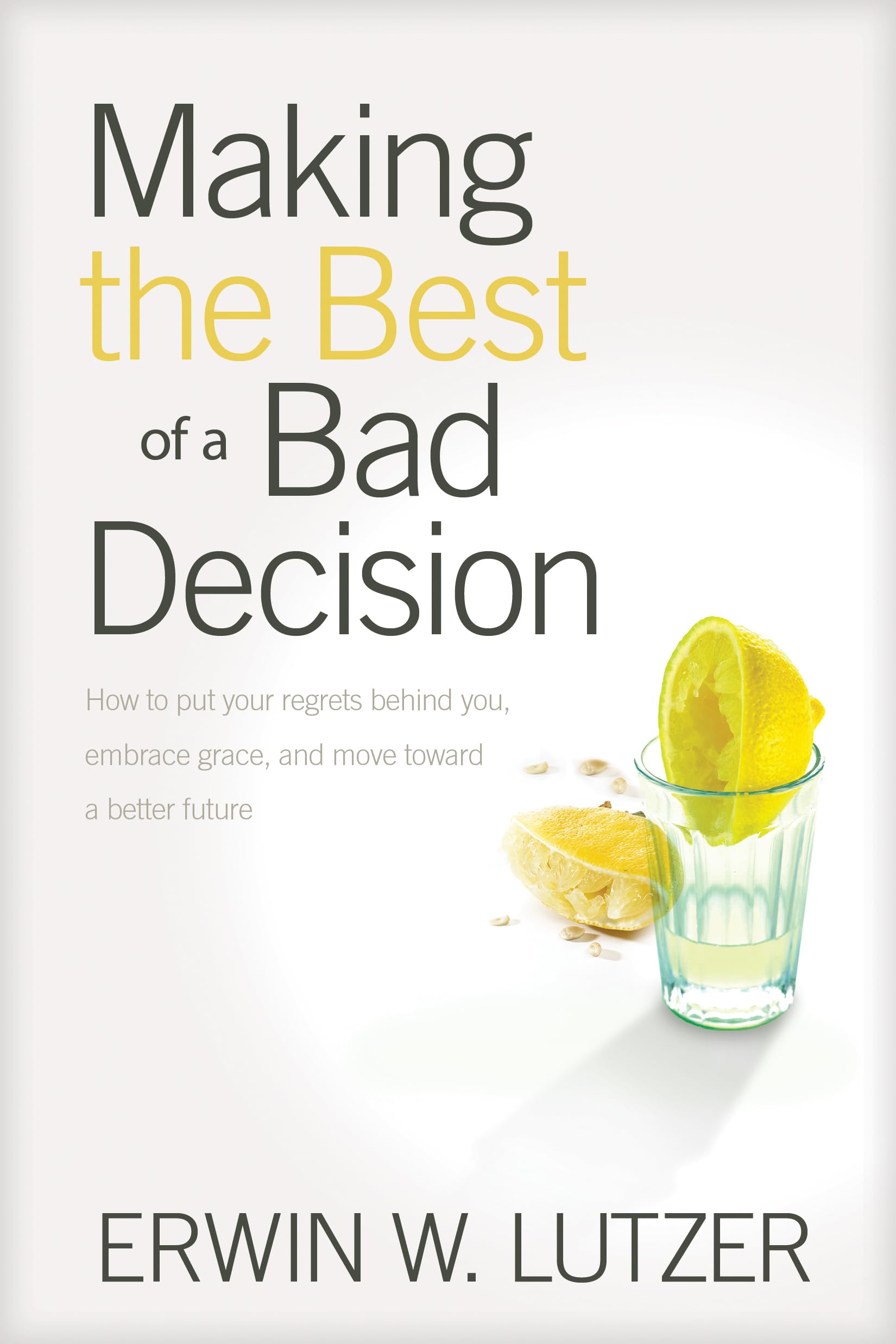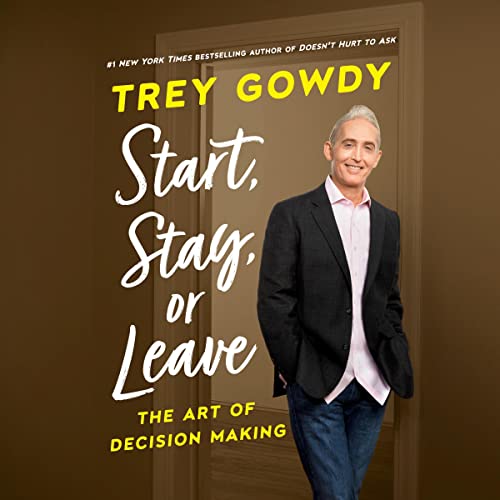In today’s fast-paced world, making informed and effective decisions is a skill that can have a profound impact on both personal and professional realms.
The ability to choose wisely from a sea of options, to analyze information critically, and to trust one’s own judgment are indeed invaluable.
This is where decision-making books come into play. They provide structured approaches and philosophical insights into the art of making choices.
By breaking down complex cognitive processes into digestible concepts, these books equip readers with strategies to improve their decision-making abilities.
When searching for the best decision-making literature, it’s crucial to consider the book’s relevance to one’s particular needs.
A variety of titles cover different aspects of decision-making, from business-oriented strategies and psychological approaches to personal growth and ethical considerations.
Each book has its own angle on the subject, and what will be most beneficial depends heavily on an individual’s current challenges and objectives.
As one selects a decision-making book, attention should be given to the credibility of the author.
Books penned by experienced professionals, renowned psychologists, or successful business leaders often provide practical and field-tested advice.
Additionally, it’s beneficial to look for books that not only elucidate theories but also offer real-world examples and actionable steps.
A clear structure, engaging writing style, and applicability are also important to ensure the reader can easily absorb and implement the knowledge gained.
Top Picks for Decision-Making Books
Our careful selection represents the leading books on decision-making, curated to assist individuals in sharpening their judgment and problem-solving skills.
Each title has been chosen for its substantive guidance, compelling insights, and practical strategies.
Whether for personal growth or professional development, these books provide valuable frameworks and tools to make better decisions in various contexts.
Decide Smarter
If you’re seeking to sharpen your decision-making skills, “How to Decide” is a valuable guide that lays out actionable strategies clearly.
Pros
- Offers practical frameworks for decision-making
- Engages with real-life scenarios for better understanding
- Incorporates exercises to practice what’s taught
Cons
- Some concepts may be too basic for advanced readers
- A few examples could feel less relevant
- Lengthier than some may prefer for the content provided
Diving into “How to Decide,” we were struck by the straightforward approach that Annie Duke presents—this audiobook acts as a mentor walking you through your decision-making process.
It’s not every day we come across a guide that balances theoretical insights with hands-on tactics so deftly.
The examples presented are relatable, grounding abstract concepts in everyday decisions. You find yourself nodding along, recognizing your own thought patterns reflected in the pages.
And perhaps most impressively, “How to Decide” doesn’t just tell you what to do—it actively involves you with exercises, compelling you to apply what you’ve learned immediately.
We enjoyed the conversational tone, as if Duke were right there discussing the topic over coffee.
While some insights felt like reminders of what we already knew, the emphasis on understanding our cognitive biases was a welcome deep-dive into why we sometimes stray from the best choices.
Audiobooks can sometimes be dry, but not this one. Annie Duke’s narration kept us engaged—the listening experience felt much like a lively classroom discussion.
While one might argue that you could condense the core ideas into fewer pages, the elaboration helps solidify the concepts, in our opinion.
We recommend “How to Decide” to anyone seeking to boost their decision-making prowess, especially for those who appreciate a mix of theory with practicum.
It’s a resource that we’ll most certainly be returning to as we face various crossroads, be it in our professional or personal lives.
The Best Yes Guide
We believe The Best Yes is essential for anyone eager to improve their decision-making skills amidst life’s daily pressures.
Pros
- Provides practical advice with a spiritual perspective
- Offers relatable anecdotes that illuminate key points
- Easy to read and understand
Cons
- May not resonate with non-religious readers
- Some stories might feel repetitive
- Focus on personal narrative might not be for everyone
Upon reading “The Best Yes,” I was struck by how seamlessly the author intertwines spirituality with the art of decision making.
It felt like a breath of fresh air diving into the pages, as the real-life examples resonated with the daily dilemmas I often find myself wrestling with.
This isn’t just theoretical guidance; it’s practical wisdom that can be applied in countless situations to navigate life’s many demands.
Initially, I had reservations about how the content would speak to secular readers, but the principles shared weren’t overly dogmatic. Instead, they embody a universal truth about setting boundaries and prioritizing that anyone can apply, regardless of their beliefs.
Surely, one of the book’s strengths lies in its ability to deliver profound insights through stories you’d share over coffee with a friend – genuine and heartfelt.
Critically speaking, some anecdotes seemed to repeat the same message, which made certain sections of the book familiar territory once trodden.
Readers who prefer a straight-to-the-point, bulleted advice format might find the narrative storytelling a tad lengthy.
Nevertheless, the overall message does not lose its impact, and the testimonials from others have reinforced the positive change this book has catalyzed in their lives.
It’s become apparent how “The Best Yes” doesn’t merely preach concepts but practices them through its words, making it a trustworthy companion in the quest for making wiser decisions.
Making the Best of a Bad Decision
We found this guide insightful and steeped in realism, equipping us to move beyond our past missteps.
Pros
- Offers a relatable approach to rectifying past mistakes
- Written in an engaging and easily comprehensible style
- Draws from a well of practical and spiritual wisdom
Cons
- Not as in-depth as some other decision-making books
- The used copy received appeared worn and marked
- May have a slightly religious slant that might not appeal to everyone
Recently, we explored “Making the Best of a Bad Decision” and discovered its capacity to make peace with regret.
Through its pages, it became clear the book wasn’t created to sit idly on shelves; it’s meant to be used as a tool to forge a path to a better future.
Lutzer’s writing resonates with genuine compassion, a trait we found exceptionally comforting.
Our time with the book was also a reflection journey. It didn’t offer simplistic solutions or impractical advice. Instead, it focused on achievable steps and a mindset tuned to growth and grace.
The text’s accessibility allowed us to absorb the core messages without being swamped by dense academic language.
We found it advisable to read slowly, allowing adequate time to process each lesson’s applications to our own lives.
Even though some chapters shone brighter than others, each contributed to the overall narrative of hope and the possibility of redemption from our misjudgments.
The Decision Book
This compendium of strategic models is a tool every decision-maker should have at their disposal.
Pros
- Distills complex concepts into simple visuals
- Wide variety of models for different scenarios
- Highly accessible for readers at all levels
Cons
- Some models may seem basic to experienced strategists
- Not all models will be relevant to every reader
- Requires practice to effectively apply the models
Our team recently had the opportunity to use “The Decision Book” during a strategy session. The diversity of decision-making models presented came in handy, as we evaluated various scenarios.
Upon opening the book, we were impressed by the succinct summaries. Each model cut through the fluff, enabling us to focus on the core of each strategic concept.
We particularly appreciated the diagrams, which made complex theories far easier to digest.
The book also shined when it came to practical application.
We found ourselves returning to specific models like the SWOT analysis and the Eisenhower matrix when faced with choices that needed a structured approach.
For someone new to strategy or decision-making frameworks, the book is a goldmine of foundational tools.
However, those of us with a deeper background in strategic planning noted some models’ simplicity. They serve as good refreshers but might not challenge seasoned professionals.
Also, not every tool included was relevant to our needs, which is a reminder that the book’s broad approach can’t be all things to all people.
The Art of Decision Making
We believe this book provides essential insights for those at crossroads in life, thanks to Gowdy’s unique blend of personal anecdotes and pragmatic advice.
Pros
- Provides actionable decision-making strategies
- Narration adds a personal touch, enlivening the content
- Useful for a wide age range, from young adults to experienced professionals
Cons
- Style might not appeal to those looking for academic discourse on decision-making
- Some may prefer a more traditional writing style over Gowdy’s anecdotal approach
- Specific references may resonate more with an American audience
Buying Guide
Assessing Content Quality
When selecting a book on decision making, we evaluate the author’s expertise and the depth of content.
We seek well-researched and informative material, providing actionable advice supported by real-world examples or data.
The content should be comprehensive yet concise to facilitate understanding without overwhelming the reader.
Presentation and Accessibility
We prioritize books that are structured in a reader-friendly manner.
The presence of summaries, bullet points, and clear headings enhances comprehension.
Visual aids such as charts or diagrams can elucidate complex concepts.
The quality of the writing, including language clarity and logical flow, is pivotal for us.
Relevance
Our focus remains on how current the insights and strategies are within the book.
We examine the publication date and the pertinence of its content to contemporary decision-making challenges.
Books should be adaptable to our personal or professional lives, offering value through relevancy.
| Feature | Importance | Description |
|---|---|---|
| Author’s Credentials | High | We look for authors with proven expertise in decision-making theory or related practical fields. |
| Case Studies/Examples | Medium to High | Real-world examples can significantly enhance understanding and application of concepts. |
| Practicality | High | Books should offer actionable strategies that can be implemented in various decision-making scenarios. |
| Clarity of Writing | High | We prefer books that articulate ideas clearly and concisely without jargon. |
Reader Reviews
We consider the experiences of other readers as reflected in reviews.
Reader feedback can provide insight into the book’s usability and effectiveness in teaching decision-making skills.
Price Point
While we are mindful of cost, our emphasis is on value.
We do not compromise on quality for price’s sake, instead we seek a balance ensuring the investment in the book translates into significant knowledge gains.
Frequently Asked Questions
We’ve compiled a list of common inquiries regarding books that can enhance decision-making skills and provide clarity on this vital topic.
These texts are among the best in their field, backed by expertise, and recognized for their lasting impact.
What are the top-rated books that improve decision-making skills?
Among the top-rated books for honing decision-making abilities, “Thinking, Fast and Slow” by Daniel Kahneman and “Decisive: How to Make Better Choices in Life and Work” by Chip Heath and Dan Heath are highly regarded.
Each book provides unique insights into the cognitive processes that influence how we make decisions.
Which decision-making and problem-solving books are recommended by experts?
Experts often recommend “The Decision Book: Fifty Models for Strategic Thinking” by Mikael Krogerus and Roman Tschäppeler and “Problem Solving 101: A Simple Book for Smart People” by Ken Watanabe.
These books are valued for their practical frameworks that can be applied in various decision-making scenarios.
What are the widely recognized classic books on decision-making?
Classic books that stand the test of time in the field of decision-making include “The Art of Strategy: A Game Theorist’s Guide to Success in Business and Life” by Avinash K. Dixit and Barry J. Nalebuff, as well as “Predictably Irrational: The Hidden Forces That Shape Our Decisions” by Dan Ariely.
Can you suggest some books that deal explicitly with indecisiveness?
For those struggling with indecisiveness, “The Paradox of Choice: Why More Is Less” by Barry Schwartz offers a profound look at how the abundance of choice can lead to decision paralysis.
Another valuable read is “Choice Theory: A New Psychology of Personal Freedom” by William Glasser, which aims to empower readers to make better personal choices.
What texts explore the psychology behind effective decision-making techniques?
Texts that delve into the psychology of decision-making often include “Nudge: Improving Decisions About Health, Wealth, and Happiness” by Richard H. Thaler and Cass R. Sunstein, which examines how we can be influenced to make decisions that are in our best interest, and “Blink: The Power of Thinking Without Thinking” by Malcolm Gladwell, exploring the advantages of intuitive decision-making.
Which books should adults read to enhance their decision-making capabilities?
Adults seeking to enhance their decision-making capabilities should consider “Smart Choices: A Practical Guide to Making Better Decisions” by John S. Hammond, Ralph L. Keeney, and Howard Raiffa. This book outlines a clear and practical approach to decision-making.
Another excellent read is “How We Decide” by Jonah Lehrer, which brings together neuroscience and psychology to illuminate how we can make better decisions.










